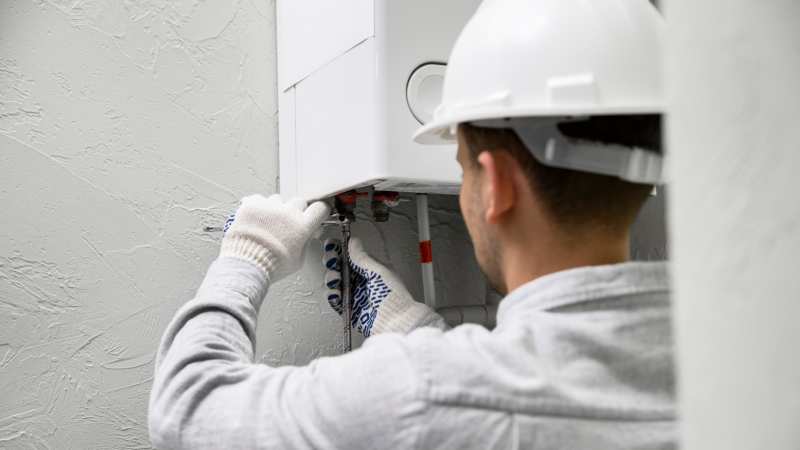Your water heater is one of the most essential appliances in your home, ensuring warm showers, clean dishes, and fresh laundry every day. However, like any appliance, it won’t last forever. When it begins to show signs of wear or inefficiency, it may be time for a replacement. Recognizing when to seek water heater replacement services in Layton can help you avoid unexpected breakdowns, high energy costs, and potential water damage. Let’s take a closer look at the key indicators that it’s time to upgrade your water heater and what to keep in mind during the process.
Understanding the Typical Lifespan of a Water Heater
Traditional tank-style water heaters typically last 8 to 12 years, while tankless models can run efficiently for up to 20 years with proper maintenance. If your system is nearing or past this range, it’s time to start planning for a replacement. While age alone doesn’t always mean it’s time to upgrade, older units often lose efficiency, need more repairs, and are more prone to leaks. To check your water heater’s age, look for the serial number on the manufacturer’s label—it usually includes the year it was made. As your water heater approaches the end of its lifespan, consider upgrading before major issues arise.
Warning Signs You Shouldn’t Ignore
Certain warning signs can indicate your water heater is struggling to meet your home’s demands. Here are the most common symptoms that it may be time for a replacement:
1. Inconsistent or Insufficient Hot Water
If your showers are turning cold faster than usual or your tap water temperature fluctuates, it could signal mineral buildup inside the tank or a failing heating element.
2. Discolored or Rusty Water
Rust-tinted water coming from your hot water tap could point to corrosion inside the tank. This often means the protective lining has deteriorated and the tank may soon leak.
3. Unusual Noises
Popping, rumbling, or banging sounds can result from sediment buildup. As the sediment hardens, it forces your system to work harder, reducing efficiency and increasing wear.
4. Leaks or Moisture Around the Tank
Even a small puddle near your water heater can indicate a serious issue. A leaking tank cannot usually be repaired and may soon lead to water damage.
5. Rising Energy Bills
If your utility bills are increasing for no obvious reason, your aging water heater might be the culprit. A newer, more efficient model can lower your energy costs over time. When you notice these signs, a professional inspection can determine if you need a repair or a full replacement.
The Benefits of Replacing an Old Water Heater
Upgrading your water heater brings more than just peace of mind. Modern systems are designed to perform better, save energy, and provide consistent comfort throughout your home.
1. Improved Energy Efficiency
New water heaters use advanced technology to heat water faster and retain warmth longer, reducing overall energy consumption. This means lower monthly bills and a smaller environmental footprint.
2. Reliable Performance
A new system ensures steady hot water for your household needs—no more unexpected cold showers or fluctuating temperatures.
3. Lower Maintenance Costs
Older units often require frequent repairs, which can add up over time. A new water heater significantly reduces the likelihood of breakdowns and costly maintenance.
4. Increased Home Value
If you plan to sell your home in the future, a new water heater can be an attractive feature for potential buyers. It shows that the home is well-maintained and ready for move-in.
Choosing the Right Replacement for Your Home
When replacing a water heater, homeowners should consider a few important factors:
- Size: Choose a unit that matches your household’s water usage. Too small, and you’ll run out of hot water quickly; too large, and you’ll waste energy.
- Type: Decide between a traditional tank system and a tankless water heater, which heats water on demand.
- Fuel Source: Depending on your home setup, you may opt for gas, electric, or hybrid models.
- Energy Efficiency Ratings: Look for units with high efficiency ratings to save on long-term operating costs.
Consulting a qualified technician can help you determine the best option for your home’s needs and budget.
Conclusion
Replacing a water heater before it fails can prevent water damage, costly emergency repairs, and days without hot water. If your current system shows multiple warning signs or has reached the end of its lifespan, schedule a professional inspection. Proactive maintenance and timely replacement ensure your home stays comfortable year-round, especially as seasonal changes increase demand on plumbing systems.

